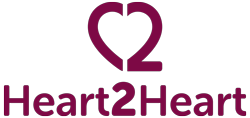Warfarin
Download this information sheet as a PDF
The aim of this information sheet is to provide you with information about a medicine called warfarin.
What is warfarin?
Blood needs to flow freely enough to move through your body. If it becomes too thick, it may get stuck and form clots. Warfarin ensures that the blood flows easily and prevents clots from forming.
Warfarin belongs to the class of medicines described as anticoagulants. Anticoagulants are medicines that prevent the blood from clotting. Warfarin is generally prescribed if there is a risk of a blood clot forming in the body, or a clot has already developed and treatment is needed to prevent further clots.
How is warfarin taken?
Warfarin is available as a tablet and as a liquid. It is best to stick to a fixed time of day for taking warfarin medicine. Speak to your anticoagulation nurse or GP about how to best take warfarin.
What happens if I miss a dose?
Contact your GP or your anticoagulation nurse immediately if you have questions about the dosage.
Make sure you always have enough warfarin to last through weekends, holidays, and vacations. Call your pharmacy at least two days before your child runs out of medicine to order refills for the tablets. For the liquid formulation your pharmacy will need at least 10 days to order refills.
What does INR mean?
INR stands for International Normalised Ratio (INR) and is a way of measuring how fast your blood clots. As INR is an internationally recognised test, it can be used by healthcare professionals around the world. The higher your INR value is, the longer it takes the blood to clot.
Why is it important to keep measuring INR levels?
INR is a measure how fast your blood clots. It is essential to take the correct dose of warfarin medicine exactly as you have been advised by your doctor or anticoagulation nurse. Too small a dose could allow blood clots to develop, while too large a dose could lead to bleeding problems.
You or your child will have regular INR tests so that the doctor can check that the dose of warfarin is correct.
When first starting to take warfarin, blood tests often need to be done daily, but once the blood results become stable, testing may be required less frequently
What does an INR test involve?
The test involves pricking the patient’s finger and putting a small drop of blood onto a testing strip. The INR machine then calculates the length of time it takes the blood to clot and works out the ratio. Someone who does not take warfarin medicine should have an INR = 1.0.
Many people on warfarin medicine have to go into their local hospital or surgery to have their INR tests done. This can take up a lot of time and could result in a child missing school. The Children’s Heart Federation can provide INR machines to children, so that they can do their tests at home. For more information about this service go to our website https://www.chfed.org.uk/how-we-help/equipment/ or phone our free Infoline: 0808 808 5000.
Which factors may affect the INR results?
- lifestyle changes
- changes in diet
- changes in body weight
- changes in activity levels
- illness
- other medications
- nutritional supplements
- alcohol consumption
What are the side effects of taking warfarin?
If too much warfarin is taken, there is a risk of severe bleeding. This can take the form of heavily bleeding gums, heavy periods, bruises, unusual nosebleeds, blood in the urine or stool (black poo). Seek urgent medical attention for any major bleeding.
If too little warfarin is taken, pains in the legs or chest can be a symptom of a clot, thrombosis or embolism. Other symptoms can include breathlessness, hypersensitivity, rash, hair loss, changes to skin circulation resulting in ‘purple toes’ or dark or orange looking skin. If you are unsure or think you may have any of the side effects listed, please speak to your GP or your anticoagulation nurse immediately.
Can I do sports when taking warfarin?
Contact sports (rugby, martial arts etc) are usually not advised due to the risk of injury, but your doctor or anticoagulation nurse should be able to advise you regarding any sports you are interested in performing. Sports such as football, hockey or cricket are fine provided you remember that any contact injury sustained during play is likely to result in bruising or possibly bleeding. Wearing protective gear is essential. Even when the warfarin dose is correct, patients are at greater risk of bleeding and bruising.
What should I do in case of an injury?
If there is a small cut, put pressure on it with a clean cloth. If bleeding persists, go to your nearest Accident and Emergency Department (A&E). If you think you may have a head injury, go and get it checked out by a doctor immediately or go to A&E.
Should the school be informed?
You should inform your school about warfarin. It is particularly important to tell sports or physical education teachers about warfarin. If accidents occur the bleeding may be more intense.
What happens if I want to go on holiday?
If you are going on holiday let your anticoagulation team know and arrange an INR check before you go. Make sure you have enough warfarin tablets/suspension for your stay plus a few days extra and carry them in your hand luggage in case of lost suitcases. Keep some medicine in your hand luggage and some in your suitcase, this way you have a backup if either piece of luggage is lost in transit. Travel insurance is essential if going abroad. Contact CHF if you have any questions about travel insurance.
Who else should I tell about warfarin?
You should always tell / remind your child’s pharmacist, dentist, anticoagulation nurse or GP that your child is taking warfarin, especially if other treatment is being considered.
What is the ‘Yellow Book’?
You or your child will have been given a ‘Yellow Book’ which will provide important information about warfarin medicine and holds the records of INR tests and up-to-date warfarin doses being taken. This is a very important document that needs to be kept updated and should be kept by (you or) your child at all times. Speak to your doctor or anticoagulation nurse if you have any questions regarding warfarin and your INR levels.
Do you think you would benefit from an INR machine?
For more information about this service go to our website www.chfed.org.uk/how-we-help/equipment or phone our free Infoline 0808 808 5000.
Evidence and sources of information for this CHF information sheet can be obtained at:
(2) NICE – anti-coagulation Warfarin
About this document:
Published: June 2014
Reviewed: May 2022
To inform CHF of a comment or suggestion, please contact us via info@chfed.org.uk or Tel: 0300 561 0065.









